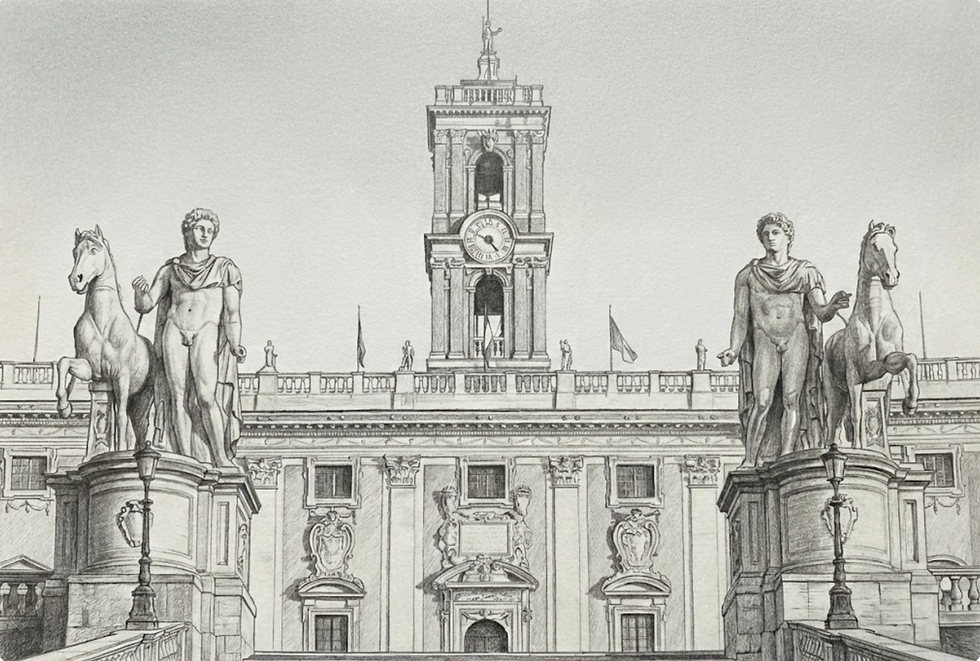Romans in Spain
- sulla80

- Sep 20, 2025
- 3 min read

Romans considered themselves a people of fides. The Greek historian of the 1st century BCE, Diodorus Siculus, reported that the Romans had the habit of persistently talking about fides. For Cicero fides was the foundation of justice and the holiest thing in life, and for Valerius Maximus it represented security for all human happiness.
- Valsan, R (2017), "Fides, bona fides, and bonus vir: Relations of trust and confidence in Roman Antiquity",Journal of Law, Religion and State, vol. 5, no. 1, pp. 48-85. https://doi.org/10.1163/22124810-00501003"...the Romans, harping as they did on the word fides, certainly ought not to protect assassins who had shown the greatest contempt for good faith"
-Diodorus Siculus, Library of history , Fragments of Book XXIII.1The foundation of justice, moreover, is good faith; — that is, truth and fidelity to promises and agreements.
-Cicero, De Officiis, 1.7.23Let the hidden and insidious evil, perfidia (treachery), be dragged from its lairs. Its most potent force lies in lying and deceiving; its reward consists in some crime once committed, and it is most certain when it has ensnared trust with wicked bonds—bringing as much harm to humankind as bona fides (good faith) brings safety.
- Valerius Maximus, De perfidia (On Treachery), IX.6Roman Spain
After the defeat of Carthage (206–201 BCE), the Iberian Peninsula became two Roman provinces: Hispania Citerior (Nearer Spain) and Hispania Ulterior (Further Spain). For decades afterward, rebellions flared across both provinces. The Celtiberians in central Spain and the Lusitanians in the west became the strongest opponents.
The Romans acted far from good faith in Spain: Roman governors used brutal tactics - raids, enslavement, destruction of towns - to suppress revolts, which often provoked fresh uprisings. One notorious episode of treachery was the massacre by Sulpicius Galba (150s BC), who slaughtered and sold Lusitanian 8000 men after luring them into talks and disarming them under false pretenses.
The Numantian War
Consul Metellus Macedonicus campaigned in Hispania, defeating the Arevaci but leaving Numantia unconquered (143-142 BCE).
His successor Q. Pompeius commanded 30,000 men but suffered repeated defeats near Termantia and Numantia. He tried starving the city by diverting a river, but failed. Harassed and shamed, Pompeius secretly concluded peace in 139 BCE, extracting hostages and silver, only to deny it when his successor Popillius Laenas arrived; the Senate ordered the war to continue.
In 140 BCE, when this coin was issued, the consuls Gaius Laelius Sapiens and Quintus Servilius Caepio held office. Laelius, Scipio Aemilianus’s ally, had recently served in Africa and Spain and was a leading senatorial voice; Caepio belonged to a powerful Servilian line.

Roman Republic, C. Valerius Flaccus, AR Denarius (3.29g, 18mm), Rome, 140 BC.
Obv: Helmeted bust of Roma right, X behind
Rev: Victory in galloping biga right, C•VAL•C•F ligate below, FLAC above, ROMA in linear frame below
Ref: Crawford 228/2
C. Valerius C. f. Flaccus was a Roman moneyer (tresvir monetalis) active in 140 BCE, from the patrician gens Valeria (Flacci). His denarii were struck at Rome and show Roma on the obverse (with the value mark XVI on some dies and X on others). The “C·F” records his filiation, “Gaii filius” (son of Gaius).
Times & context. His coinage falls immediately after the re-tariffing of the denarius from 10 to 16 asses (c. 141 BCE), when XVI briefly appears before a return to X - hence the two parallel varieties on his issues. The biga reverse is the standard mid‑2nd‑century type.
Family placement (probable). This moneyer is most likely the father of the later consul Gaius Valerius Flaccus (93 BCE) and grandson of a praetor of 183 BCE; the VAL monogram on his coins fits the family name.
Scipio Aemilianus, already the conqueror of Carthage.
In 134 BCE the Senate turned to Scipio Aemilianus, already the conqueror of Carthage. Though underage to serve as consul, Scipio was elected by special law. He r gathered loyal volunteers and allies and arrived in Spain to find the army corrupt and idle. He imposed harsh discipline: expelling traders and soothsayers, banning luxuries, forcing men to march on foot, and himself sleeping on straw.
By 134-133 BC, he had restored Roman discipline a he concluded Numantine War in 133. Soon after, post-war turbulence led to Tiberius Gracchus’s tribunate (133 BCE).




Comments